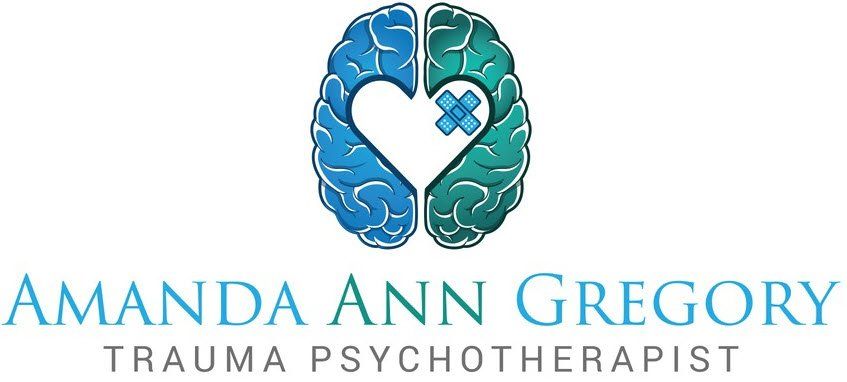How to Support Someone Who's Chosen Family Estrangement
After my previous post, "How Family Estrangement May Benefit Trauma Survivors," some readers expressed appreciation for the validation it provided them, while others reported that the post was “dangerous” and could “cause harm to the family unit.” Some readers reported that they have a loved one who has chosen to become estranged from their family, and asked a common question: How do I help them?
For example:
- “My husband hasn’t spoken to his mother for seven years. She was abusive to him and his brothers. At first, I didn’t mind but our children are getting older, and they are starting to ask about her. Should I encourage him to reconnect with her for the sake of our children?”
- “My partner is estranged from her entire family. She says it’s what she needs, but every holiday, she gets really depressed about it. How can I help her?”
- “My siblings won’t talk to our parents, and whenever I bring up the topic, they get angry or won’t talk about it. I don’t know what to do.”
How can you support a loved one who has chosen family estrangement? Consider these four points.
1. Discuss safety.
As a therapist, I’ve found that not feeling safe is one of the main reasons why people choose and sustain family estrangements. Yet, this lack of safety is rarely discussed or explored. Try expressing curiosity about your loved one’s feelings of safety in order to better understand their need for estrangement.
Consider asking them:
- Do you feel physically, sexually, financially, and emotionally safe with (the family member(s)) from whom you are estranged)?
- Do you feel safe communicating with them or being in their physical presence?
- What type of contact do you feel safe having with them, if any?
If they do not feel safe, then estrangement isn’t the most important issue. Their safety is the priority. Safety is required in order to participate in healthy family relationships. Too often, people request, pressure, or force loved ones to engage in family relationships when they feel it is unsafe. This is a mistake, as these forced relationships rarely provide value and can cause significant harm.
2. Promote their safety.
If a lack of safety caused your loved ones to choose family estrangement, ask them if you can help to support their safety. There might be an action that you can take to help them to feel safe or cease actions that are contributing to their feelings of unsafety.
Consider asking them:
- Is there anything I can do, or stop doing, in order to help you to feel safer?
Here are a few answers that my estranged clients provided their family/friends:
- “I need you to trust me. I’m protecting our children. I’d rather that they don’t have grandparents at all than ones who will abuse them.”
- “Stop acting as the fixer. It’s not helpful and it’s not going to work. You don’t need to fix this.”
- “If I decide to visit them, I need you to come with me and never leave me alone with them.”
- “Do not share any information about me with them. I need us to have our own relationship, separate from them.”
- “I just need you to accept my decision. I don’t need you to agree with me, but I do need you to accept this.”
If your loved one experiences increased safety, it may end the estrangement or it may not. Remember, the goal is not to end the estrangement. The goal is to support your loved one by promoting their safety.
3. Become aware of your own biases.
Family estrangement is a controversial topic. There are many factors that may impact your perceptions and ability to support loved ones who have chosen estrangement. Such factors might include your culture, religious/spiritual beliefs, political ideation, financial status, family experiences, and gender. It’s important to be aware of your biases, as these could impact your ability to be supportive. For example, you might be biased in favor of family estrangement due to your own negative family experiences. Or, you may be biased against estrangement because of your political or religious beliefs.
You are likely biased if you are a member or associate of the estranged family. Estrangement changes family dynamics, and some people benefit from family dynamics, even dysfunctional ones, that remain unchanged. For example, suppose one person fills the role of the family’s scapegoat and this person chooses estrangement. As a result, the family may struggle and not know how to function without a scapegoat. Families are like organisms, constantly trying to return to a state of equilibrium or status quo. When the family dynamics change due to estrangement, the family members or associates may attempt to end the estrangement to return to the status quo. You are likely biased if you benefit or lose when a family dynamic changes due to estrangement.
If you are a family member, it’s important to remember that all family members do not have the same experiences within the same family. Even siblings who are close in age and raised in the same family can have completely different experiences, both of which are valid. One sibling, who filled the role of the scapegoat, may choose estrangement, while another sibling, who filled the golden-child role, may not.
To determine if you have a bias, ask yourself these questions:
- How do I feel about the practice of family estrangement?
- What specifically about myself (culture, religious/spiritual beliefs, political ideation, financial status, gender, family experiences) impacts my perception of family estrangement?
- What will I gain or lose if this family estrangement continues or ends?
- What is my experience in this family, and how does that differ from the person who has chosen estrangement?
- When we know our biases, we can attempt to be more objective. We can also communicate our limitations in regard to being able to support a loved one who has chosen estrangement.
4. Respect their decision.
One of the biggest mistakes you can make is attempting to force, pressure, guilt, shame, blame, or manipulate someone to end a family estrangement. I’ve never seen or heard of these methods being successful in the long term; if anything, these tactics tend to reinforce the need for estrangement. Instead, respect your loved one’s decision to become or remain estranged from their family.
If you do not understand their decision, ask questions with the intention of seeking to understand. Try to avoid asking questions for the sake of trying to convince them of anything. Imagine that your loved one feels safe with their family member(s), and they’ve chosen estrangement because relationships with their family member(s) do not bring much value to their life. You might disagree with their decision, but you can also respect it. If you cannot respect their decision and seek to try to convince them to end the estrangement, you may not be the best person to provide them with support in this area of their life.
Sign up for my monthly newsletter and receive the free e-book 25 Anxiety and Trauma Coping Hacks. Sign up HERE.

All Rights Reserved | Amanda Ann Gregory, LCPC
Design & Consultation by Teresa Lauer, LMHC, GrowYourTherapyPractice.com *

